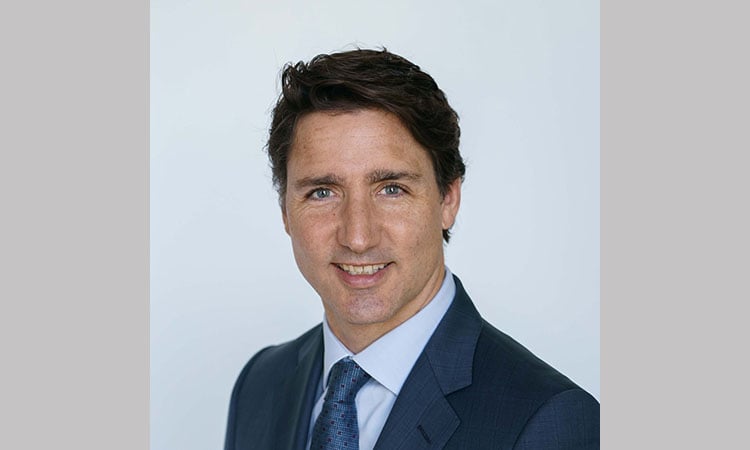News Flash
News Flash

By Harun Al Nasif
DHAKA, Jan 7, 2025 (BSS) - Justin Trudeau yesterday announced his resignation as leader of the Liberal Party in a press conference held in Ottawa, saying that he would continue serving as Prime Minister until the party elected a new leader.
His decision came amidst rising public dissatisfaction over issues like increasing costs of housing and food and controversies surrounding immigration policies. Internal party conflicts and declining poll numbers also contributed to his decision.
Justin Trudeau, as the 23rd Prime Minister of Canada, has set a remarkable example of modern politics. Rising to power in 2015, he not only initiated political change but also sought to reshape Canada's social and economic structures. His rise and legacy together reflect a progressive, inclusive, and humane leadership.
Rise: From Legacy to Leadership
Born on December 25, 1971, in Montreal, Justin Trudeau is the son of Pierre Elliott Trudeau, one of Canada’s most influential leaders. Growing up in a family where politics and leadership were integral, Trudeau envisioned societal change from an early age.
Although he started his professional life as a teacher, 2008 marked his significant entry into politics. He was elected as the Member of Parliament for the Papineau constituency in Montreal and quickly became a favorite among liberals and young voters. In 2013, he assumed leadership of the Liberal Party, and under his guidance, the party secured a historic victory in the 2015 elections, making him the Prime Minister.
Legacy: A Symbol of Progressive Leadership
Inclusive Leadership
Trudeau's leadership emphasized equality and diversity. His cabinet was the first in Canadian history to achieve gender parity, with equal representation of men and women. Additionally, he championed LGBTQ+ rights, reinforcing his commitment to inclusivity.
Fight Against Climate Change
Trudeau upheld his commitment to environmental protection by reaffirming Canada’s participation in the Paris Climate Agreement. He introduced a carbon tax as a measure to combat climate change. Although some criticized the duality in his environmental policies, his initiatives bolstered Canada's global standing on environmental issues.
Advancing Indigenous Rights
Trudeau worked to restore the rights of Canada’s Indigenous communities. His efforts to implement the recommendations of the Truth and Reconciliation Commission and investments in meeting Indigenous communities' basic needs, such as clean water and education, marked a significant aspect of his leadership.
Economic Growth and Social Equity
Trudeau’s economic policies focused on the middle class. He reduced taxes, increased investments in family and child welfare, and created job opportunities. During his tenure, unemployment rates significantly declined, positively impacting Canada's economy.
International Leadership
Trudeau strengthened Canada’s presence on the global stage. He played a key role in forums like the United Nations, G7, and G20. His leadership in refugee acceptance and humanitarian efforts became a model of progressive global leadership.
Challenges and Criticism
Trudeau’s tenure was not free from criticism. The SNC-Lavalin scandal and unfulfilled campaign promises dented his popularity. Moreover, his economic and environmental policies at times exhibited inconsistencies, calling into question his ideological positions. Despite these challenges, his broader legacy remains significant.
Legacy: Long-term Impact
Justin Trudeau’s legacy extends beyond his time in office; it serves as a model for the future of Canadian politics. He paved the way for a liberal, inclusive, and responsible society, inspiring younger generations. Under his leadership, Canada became a strong example of progressive governance, delivering a powerful message to proponents of liberal politics worldwide.
Justin Trudeau's rise and legacy narrate the story of a progressive, humane, and responsible leadership. Under his guidance, Canada not only emerged as a developed nation but also contributed significantly to global politics. His legacy will remain a cornerstone for Canada’s social, political, and economic advancement in the years to come.